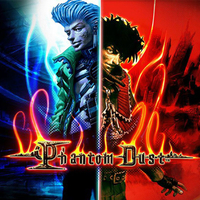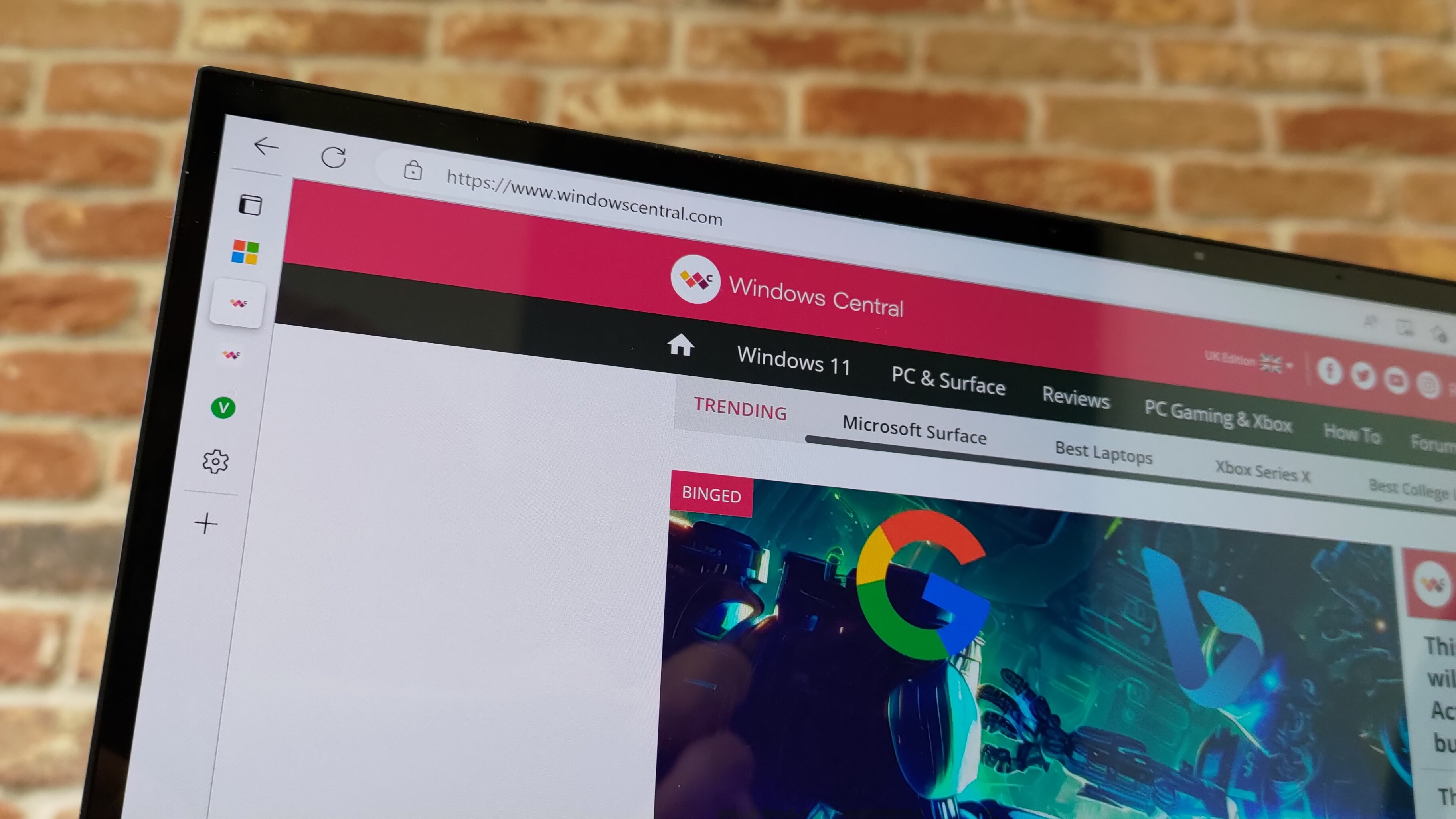Hey, Xbox, it’s time to bring back Phantom Dust
An important franchise worthy of a reboot.
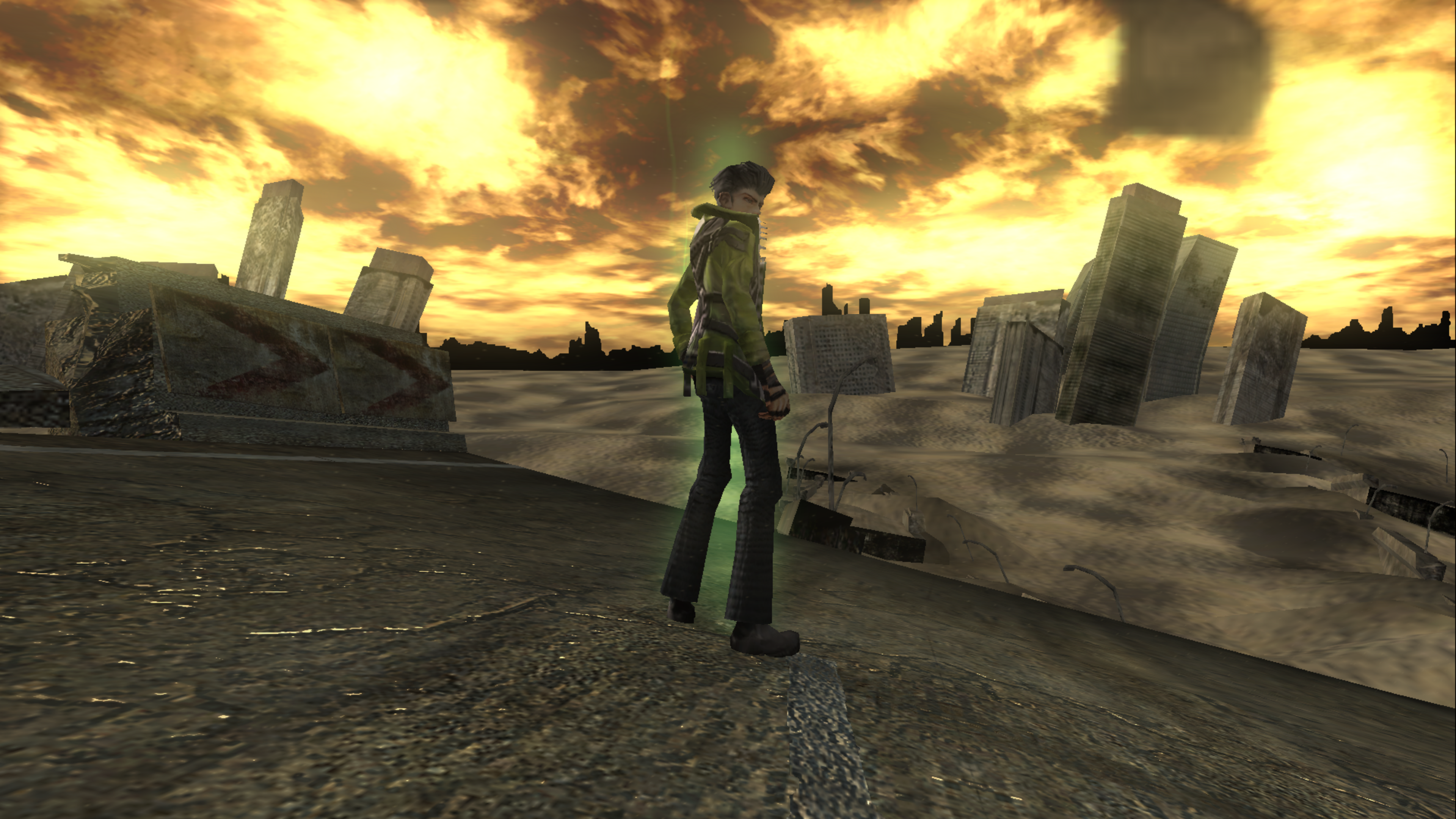
Xbox Game Studios is in the process of constructing an emboldened, new foundation for the future of first-party titles on the platform. While a healthy chunk of this strategy will undoubtedly focus on fresh, groundbreaking IPs like Everwild, Xbox has also demonstrated its desire to reimagine some of its most beloved properties. Fable from Playground Games and Perfect Dark from The Initiative, in collaboration with Crystal Dynamics, are actively in development.
There’s no denying the energy and excitement surrounding these high-profile reboots. For many longtime fans, titles like Fable helped establish Xbox as a respectable figure in the video games industry. So ultimately, it makes sense for the company to allocate resources toward these projects. However, there’s one exceptional franchise equally deserving of legitimate reconsideration despite a soft sales launch and canceled comeback: Phantom Dust.
When Phantom Dust launched on the original Xbox in 2004, it delivered a wholly original gameplay experience that remains unmatched almost two decades later. Part Magic: The Gathering, part Dragon Ball Z, the ingenious combination of strategic deck-building and intense arena-driven action has garnered a passionate, loyal audience of players. Thanks to increased awareness, renewed IP enthusiasm, and the thrilling possibilities of a reinvigorated Xbox, there’s never been a better time to bring back Phantom Dust.
What is Phantom Dust?

If you listen to Xbox Chaturdays or follow me on Twitter, chances are you've heard (and are probably sick of hearing me) rant about Phantom Dust. This obscure relic from Microsoft's past has resonated with fans for years, and not enough people are privy to its undeniable splendor. While there are stentorian devotees like myself spouting the Phantom Dust gospel, the reality is that a considerable percentage of gamers have no idea this franchise ever existed.
Phantom Dust is an experimental fusion of action-oriented combat and loadout-driven strategy directed by Yukio Futatsugi of Panzer Dragoon game and inspired by collectible card games like Magic: The Gathering. Set in a leather jacket-drenched, early 2000s fashion-focused, post-apocalyptic Earth, this fascinating third-person Xbox game provides an unconventional story mode and online multiplayer for up to four players. Progressing through Phantom Dust's campaign unlocks new abilities, which are then equipped with customizable "arsenals," or decks, for players familiar with competitive card games.
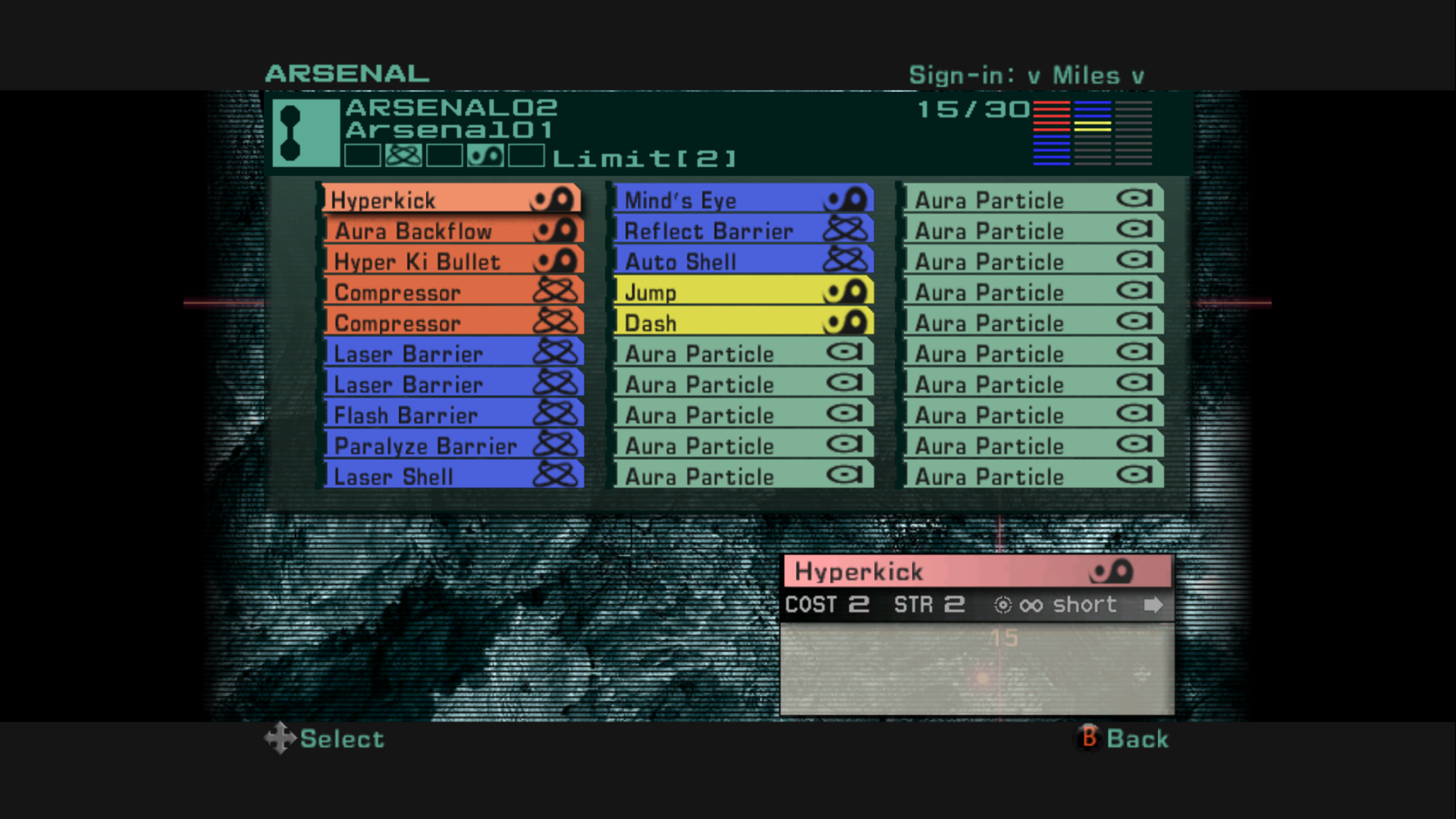
The core loop of Phantom Dust revolves around crafting thoughtful arsenals designed to outwit or overpower your opponents. In the single-player offering, this means battling surreal robotic enemies and towering monstrosities. However, a significant component of Phantom Dust's longevity lies in exhilarating player-versus-player showdowns. Four players square off in cleverly designed arenas hoping to be the final combatant standing. Understanding which skills counter or defend against your adversaries' attacks is critical to your survival. Much like a riveting game of chess, every decision has consequences.
Experimentation and gameplay freedom are beautifully celebrated in Phantom Dust.
The amount of flexibility allowed with arsenal tuning introduces unpredictable dynamics with every match of Phantom Dust. Aggressive, melee-centric arsenals with skills such as High-speed Punch enable crucial early-game pressure against rivals. Unfortunately, if a fellow player has leveraged a kit built around long-range energy attacks like Psycho Sniper, you'll have a grueling time attempting to close the distance. The fundamental dichotomy of arsenal strategies in Phantom Dust supplies a competitive multiplayer title, unlike anything you've played before.
Get the Windows Central Newsletter
All the latest news, reviews, and guides for Windows and Xbox diehards.
We could spend dozens of hours dissecting the differences between Crawl Type and Parabola Type skills and which defensive counters are best suited for varying arsenal approaches. Still, the primary selling point of Phantom Dust lies in its ability to champion the player. Thousands of arsenal combinations ensure no two encounters are the same. Experimentation and gameplay freedom are beautifully celebrated in Phantom Dust. While new players have an undeniable learning curve, your commitments are rewarded through expertly nuanced gameplay.
A quiet release and a canceled reboot
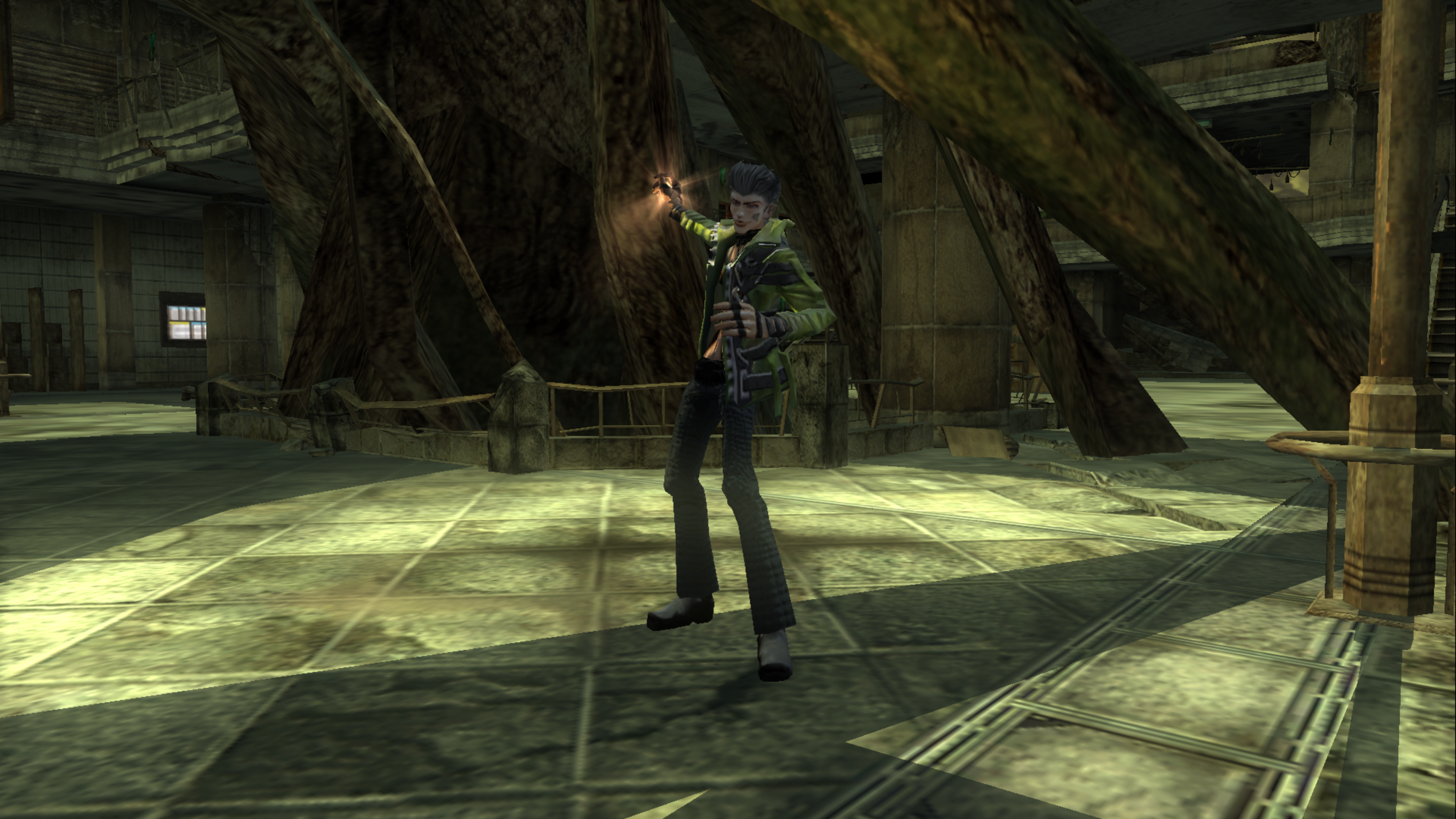
While Phantom Dust resolutely garnered admiration for its ambitious game design and forward-thinking online capabilities, its original release in 2004 was far from a commercial success. In fact, this Xbox-published title only sold a meager 6,000 copies in its first month in Japan. Following this disappointing launch, a publishing arrangement with Majesco Entertainment in North America eventually elevated those numbers above 50,000 units. This timid sales performance was especially demoralizing, considering reviewers applauded the game's emphasis on deep, action-focused tactics, and from a critical standpoint, Phantom Dust was well received.
As Microsoft and its community shifted their energy towards the impending release of the Xbox 360, hopes for growth in Phantom Dust's player count rapidly dwindled. Staunch advocates of this imaginative arena game struggled to comprehend its inability to capture an audience. Director Yukio Futatsugi and the team at Xbox were passionate about the project, but a tumultuous storm of mixed marketing and unfortunate timing seemingly doomed the deck-building action title to fail. Unfortunately, the tragic tale of Phantom Dust doesn't end there.
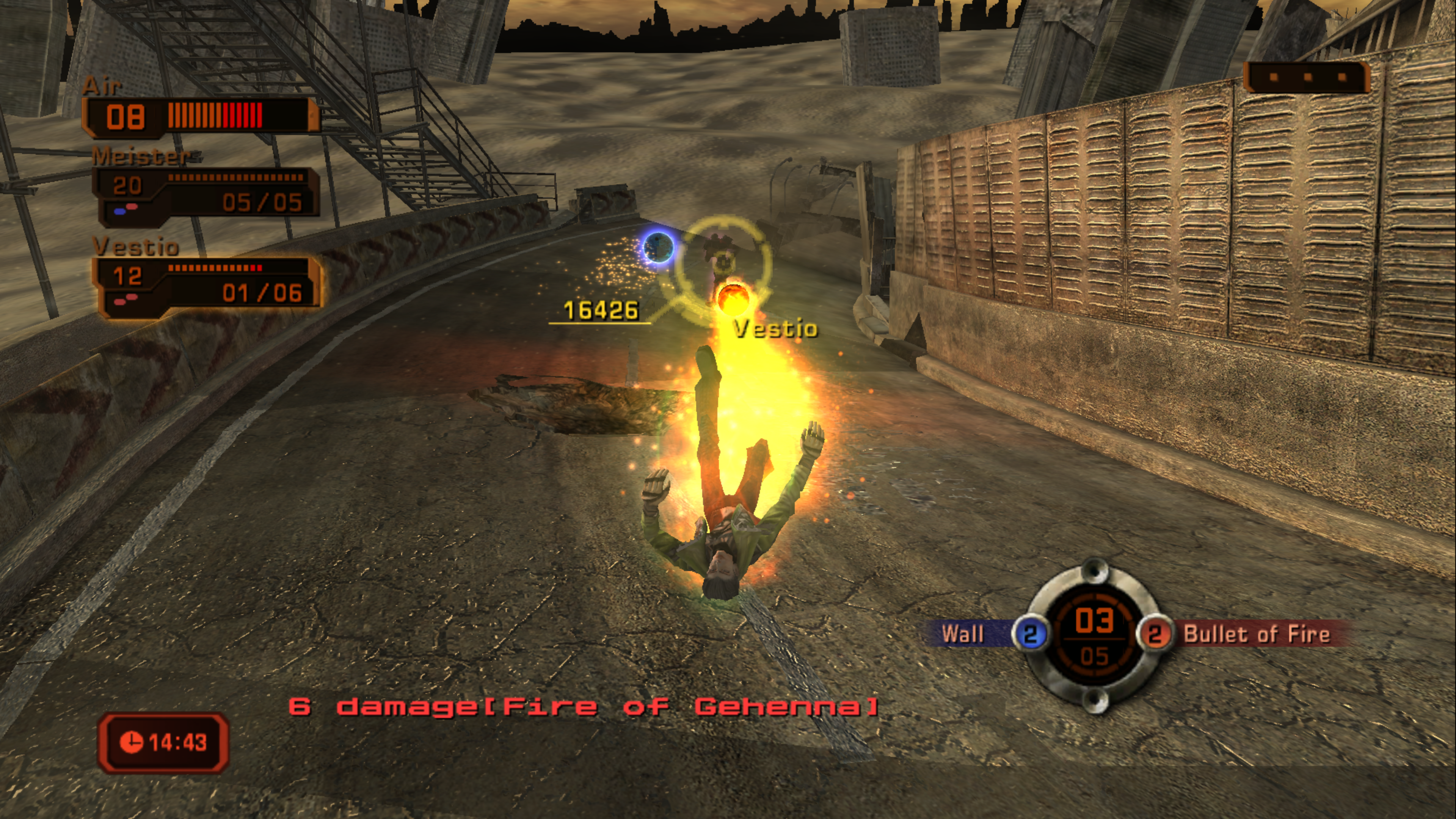
At E3 2014, a decade after the release of the original entry, Xbox announced the Phantom Dust reboot with a flashy CG trailer. Legacy players were thrilled to see this forgotten IP offered a second chance to shine and hopeful of the possibilities associated with introducing this enchanting experiment to an entirely new audience. Key figures from Xbox like Phil Spencer and Ken Lobb adamantly believed in the property's potential, declaring the original delivered gameplay elements far ahead of its time. Considering the unimpressive sales of the previous entry, it was refreshing to see Microsoft reinvest in Phantom Dust.
With renewed faith and high expectations for the cult hit's big comeback, the community eagerly awaited details on Xbox's plans for reinventing Phantom Dust. Sadly, only one year after revealing the reboot, Microsoft publicly announced it was ending its working relationship with Darkside Game Studios, the team contracted to develop the project, in June 2015. Following the removal of the core development team, Microsoft put the Phantom Dust reboot on indefinite hold until the company could find a suitable replacement.
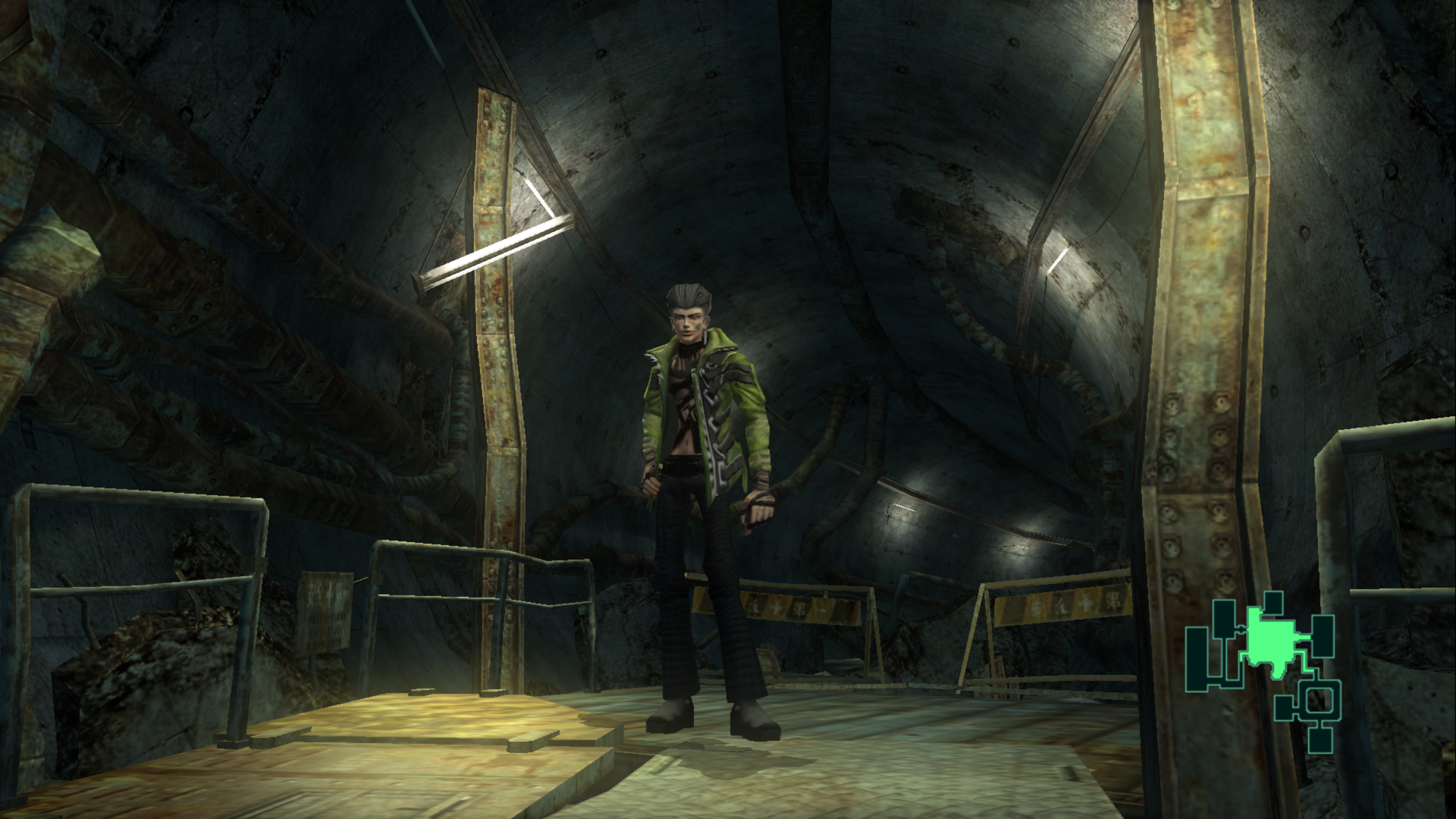
Darkside Game Studios had transitioned all 50 staff members to Phantom Dust, and this high-profile cancellation led the studio lay off its employees and close its doors permanently.
Reportedly, Darkside Game Studios agreed to craft a multiplayer-only reboot of Phantom Dust in Q2 of 2014. With an allocated budget of $5 million, this refresh of the competitive action formula targeted an August 2015 release. Upon agreeing to the terms, Microsoft requested Darkside Game Studios incorporate a single-player campaign as well. However, according to sources close to the matter, Xbox did not propose additional development time or financial resources.
The team scrambled to produce a vertical slice of the game in hopes of gaining further funding. Shortly after showcasing their praise-worthy progress on the reboot and a development update meeting, Microsoft terminated its contract, and the project was officially canceled in February 2015. Tragically, Darkside Game Studios had transitioned all 50 staff members to Phantom Dust, and this high-profile cancellation led the studio lay off its employees and close its doors permanently.
The recent resurgence
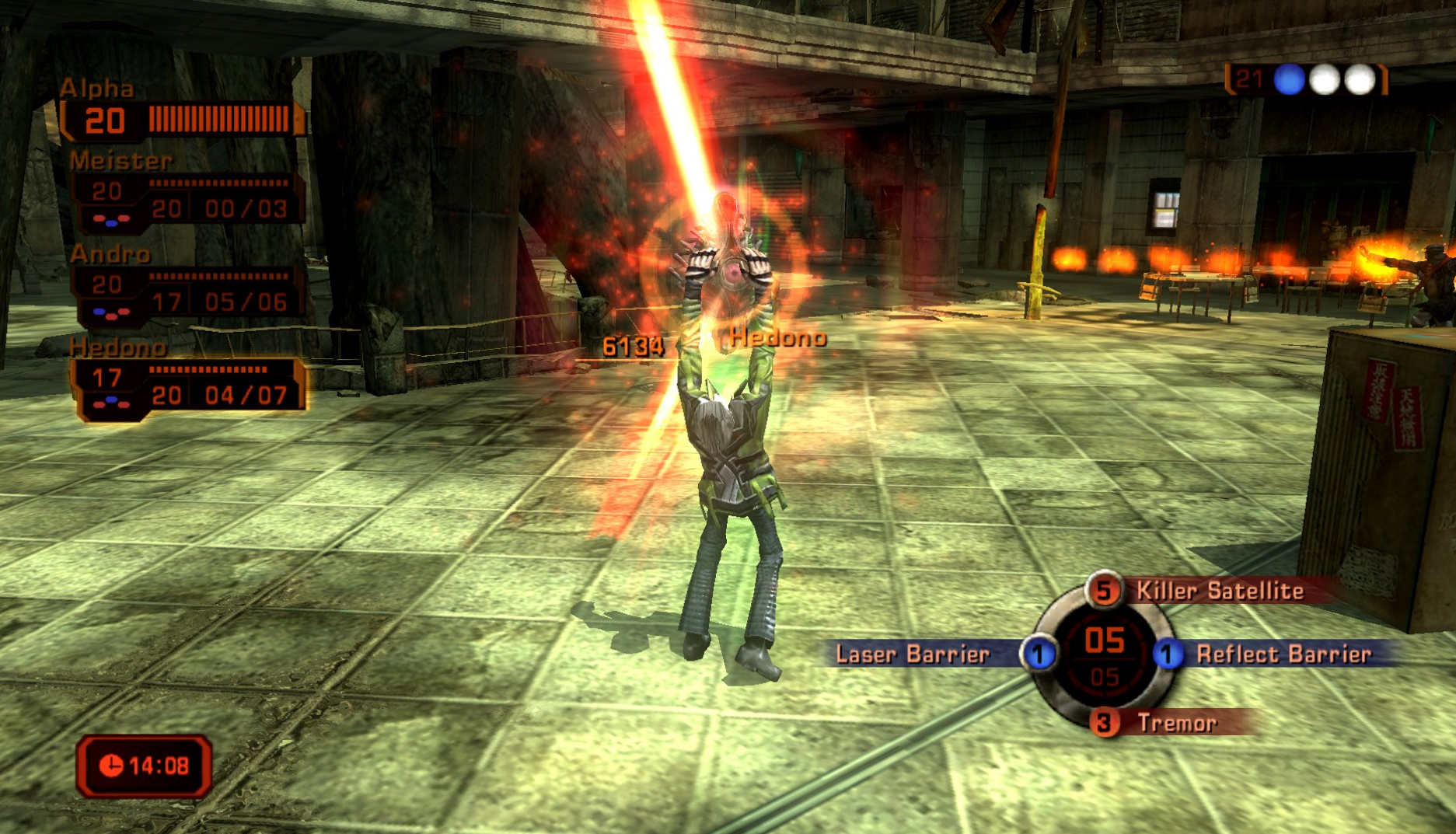
Fans yearned for what could have been with the Phantom Dust reboot. Whether or not you were familiar with the franchise, it was undeniably intriguing witnessing a major video game publisher attempt to revisit one of its most obscure titles. This borderline obsession from a vocal contingent of the community was likely a driving force behind the release of the free-to-play remastered version of Phantom Dust for Xbox One in 2017.
The talented team at Code Mystics worked their reverse engineering wizardry to fully remaster and re-release Phantom Dust using original game assets without the final source code. With improved resolution and updated Xbox Live support, this 2004 Xbox title was reintroduced to a new audience on Xbox One and PC. While not quite the grand comeback longtime fans were hoping for, the free-to-play launch of Phantom Dust quickly reached over 1 million players, confidently surpassing its original launch.
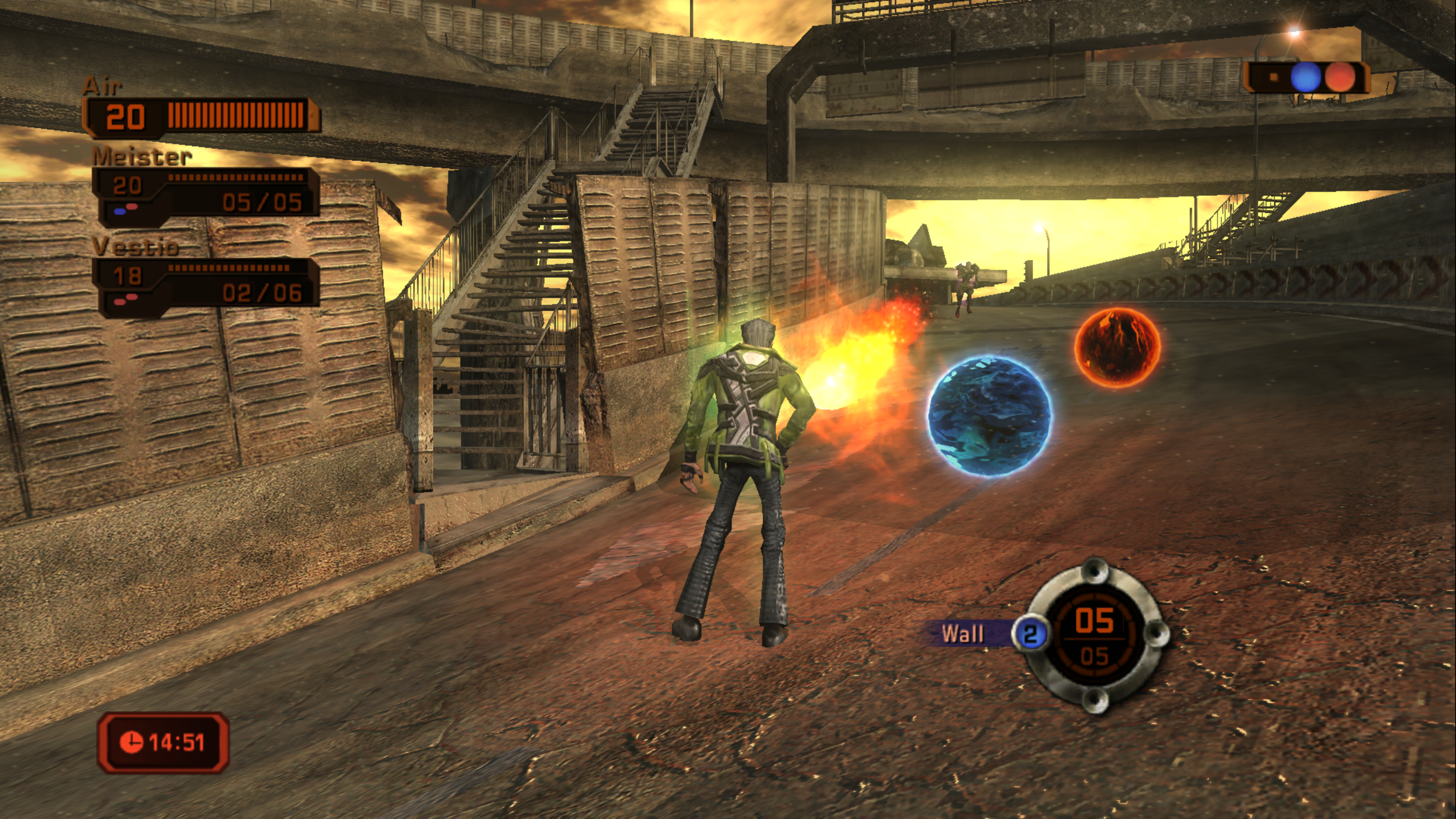
Following the announcement of the Phantom Dust reboot and its subsequent remaster, this enigmatic deck-builder has slowly but steadily seen a resurgence in recent years. From ardent editorials penned by day-one loyalists to lengthy YouTube videos about the game's impact on the Xbox platform, few cult hits achieve the same level of feverish fandom. It feels like almost every week, I'm introduced to an unfamiliar passionate subsect of the Phantom Dust community.
When Phantom Dust shipped in 2004, online gaming was in its infancy. Social platforms weren't widespread, and, in many ways, Xbox Live was in its own category. Ultimately, this meant finding players with similar interests was notably more difficult. Advancements like "Looking for Group" on Xbox or the infinite possibilities of online social hubs like Discord provide ample opportunities to connect with fellow Dust-heads. The recently formed Phantom Dust Happy Hour Discord is already approaching 2,000 members eager to party up or just learn more about the game.
A video editorial from YouTuber Nick Robinson titled "The Xbox's forgotten masterpiece" dropped last month and further amplified the voices of the dedicated Phantom Dust fanbase. With over 1.3 million views, this piece stands as one of the creator's most-watched pieces of content. While Robinson spends the bulk of the video sharing his admiration for Phantom Dust and its distinctive design philosophies, he also managed to secure an incredibly rare interview with Yukio Futatsugi.
Personally, of all the games I've ever worked on, Phantom Dust was my favorite.
Yukio Futatsugi
During this interview, Futatsugi shared insights on his experience working with Microsoft on the title and how he feels about Phantom Dust 16 years later. When asked whether he was proud of what the team accomplished with the strategic action game, Futatsugi replied, "Personally, of all the games I've ever worked on, Phantom Dust was my favorite." From there, the conversation delivers fascinating anecdotes about how Gears of War's early normal mapping inspired the graphical fidelity of Phantom Dust and the sentiments regarding the game ahead of release.
When Microsoft ended its relationship with Darkside Game Studios and paused the Phantom Dust reboot, Phil Spencer shared his hopes for releasing another Phantom Dust game with Yukio Futatsugi's involvement. Previous statements from Spencer and Futatsugi's desires to return to the franchise have led the passionate community to start a petition for Microsoft to publish a new entry with Futatsugi returning as the director. This petition has amassed over 10,000 signatures and counting in just over two months.
How to bring back Phantom Dust
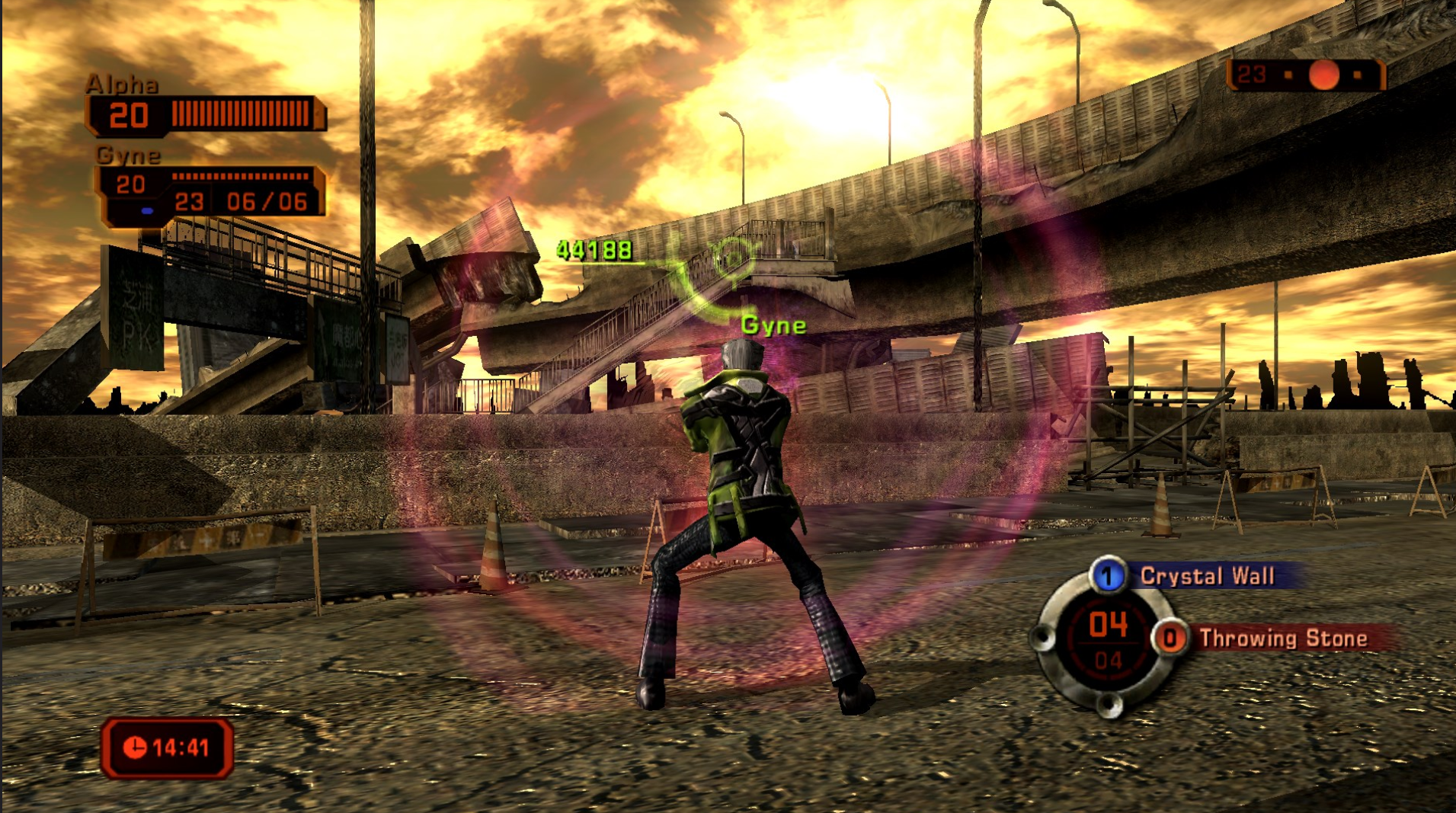
The gaming landscape has shifted dramatically since 2004. Successfully online multiplayer platforms like Fortnite, Call of Duty, and Minecraft have vacuumed up mindshare and overall playtime. Trying to reinvent any dormant franchises for modern audiences is difficult enough, let alone a title built around engaging multiplayer. God of War (2018) powerfully set the gold standard for single-player reboots, but we've seen other once-beloved PVP franchises like Medal of Honor and Twisted Metal fail to find their footing. So how exactly could Microsoft position Phantom Dust in 2022 and beyond?
Much like the 2017 remaster, free-to-play is almost certainly the proper strategy. Unconventional surprise hits like MultiVersus prove that, at the bare minimum, players are willing to give free-to-play titles a shot. And, if you can successfully hook the individuals dipping their toes in with solid gameplay, satisfying progression, and ongoing support, chances are they'll stick with it. There's no guaranteed recipe for a free-to-play blockbuster. However, in an increasingly saturated market, Phantom Dust's mechanical originality would absolutely bolster its viability.
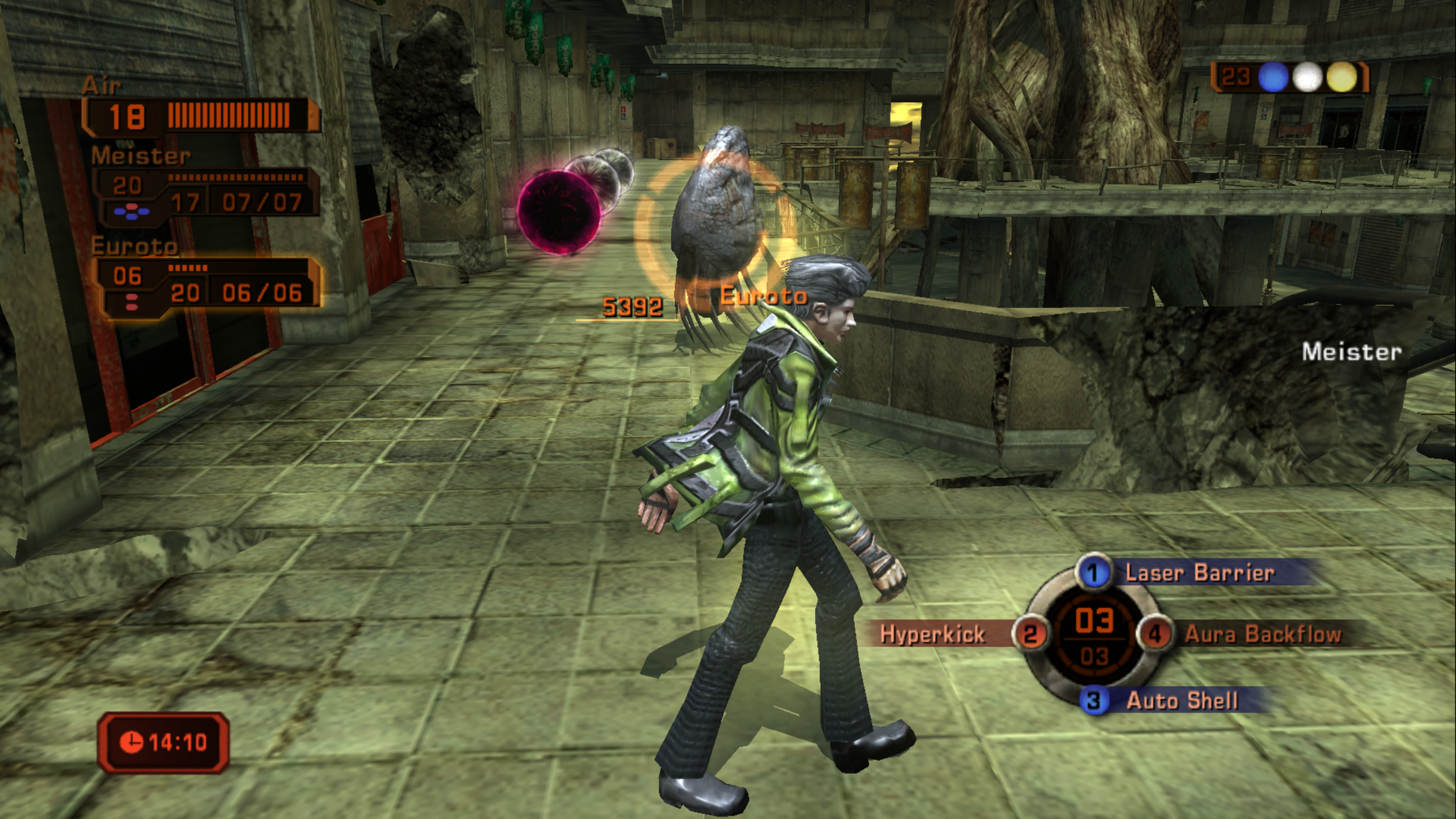
The ever-increasing interest in deck-building video games would also be a significant boon for a potential Phantom Dust reboot. Hearthstone, Slay the Spire, Magic: The Gathering Arena, and countless more have established faithful followings since Phantom Dust's initial release. While there would be complicated balancing required to alleviate pay-to-win concerns, it's easy to imagine how a robust multiplayer suite that revolves around players unlocking skills and customizing arsenals could soar in today's games-as-a-service driven economy.
I want to live in a world where Xbox Game Studios gives this idea the budget and resources it deserves.
When Microsoft last went to the drawing board with Phantom Dust, a traditional campaign appeared to be an essential part of the equation. If the publisher opted for a free-to-play rollout of the arena action experience, this feature likely wouldn't be in the cards. However, as ongoing games like Destiny 2 and Sea of Thieves have demonstrated, seasonal story-driven content is completely within the realm of possibility. A host of PVE or co-op game modes would go a long way to round out the overarching content offering and provide meaningful options for the would-be player base.
At this point, I'm personally invested in this franchise's return. Few video games have unapologetically consumed my headspace in the same ways Phantom Dust has. From selling the studio head of Cold Iron Studios on the idea of spearheading the Phantom Dust reboot to writing thousands of words on my undying fascination with the project, I want to live in a world where Xbox Game Studios gives this idea the budget and resources it deserves. Phantom Dust is one of Microsoft’s most important IPs, and until the company definitively states its retirement, I won't give up hope on this bizarre and beautiful multiplayer IP.
Phantom Dust
Experience the unique strategic deck-building action of Phantom Dust for free on Xbox or Windows PC. Even 18 years after its initial release, there's nothing quite like it.
Play for free at Xbox
Miles Dompier is a Freelance Video Producer for Windows Central, focusing on video content for Windows Central Gaming. In addition to writing or producing news, reviews, and gaming guides, Miles delivers fun, community-focused videos for the Windows Central Gaming YouTube channel. Miles also hosts Xbox Chaturdays every Saturday, which serves as the Windows Central Gaming weekly podcast.
